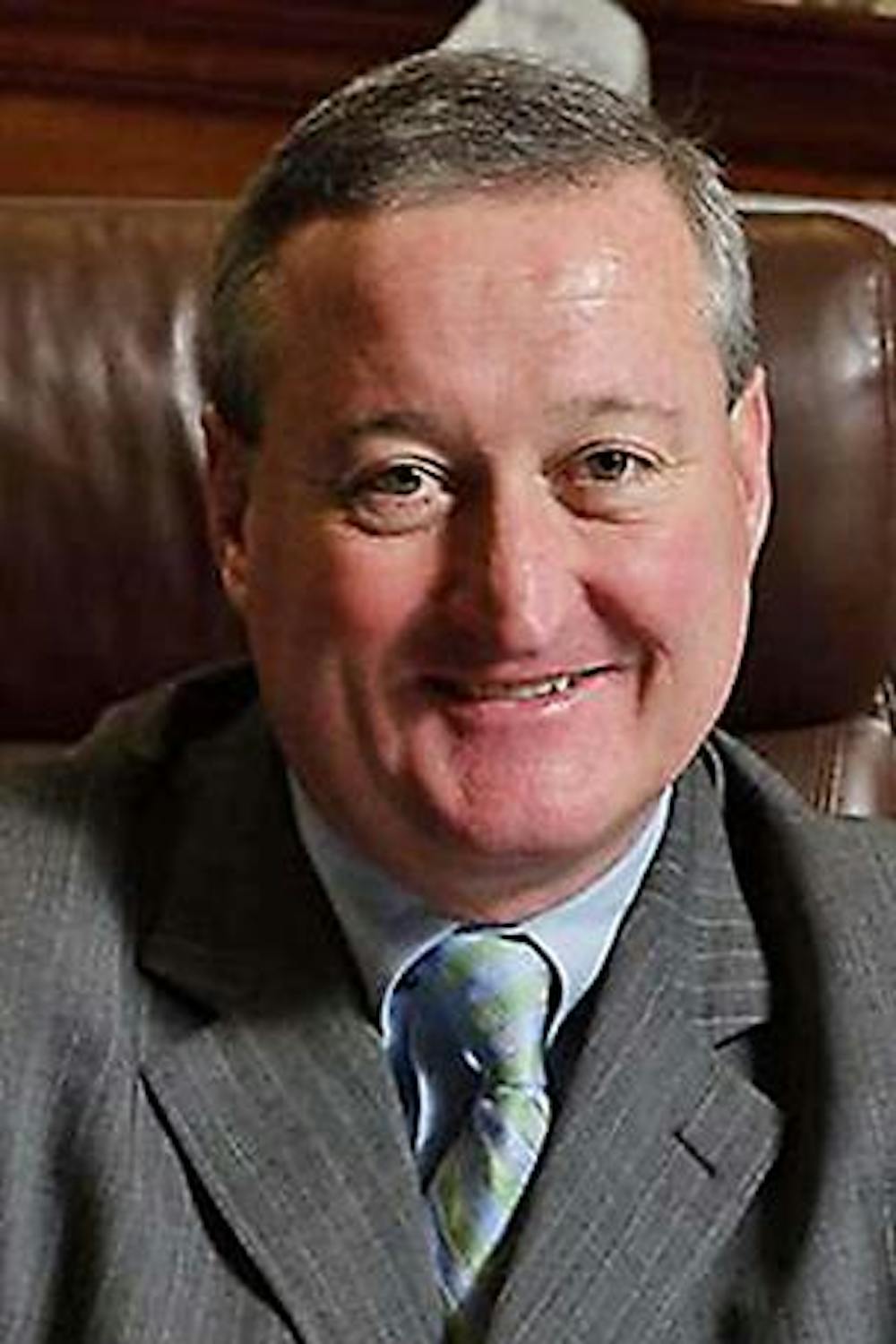Former City Councilman and visited Penn tonight for a Q&A session hosted by Penn Democrats.
Penn Dems reached out to all the Democratic mayoral candidates to invite them to speak at Penn. Kenney was the first to accept the invitation, with former District Attorney Lynne Abraham scheduled to speak next week.
He addressed hot-button issues including LGBT equality, marijuana decriminalization and education in his typical witty style.
“83 percent of people being arrested for marijuana possession are black or brown,” he said. The law’s racial disparity particularly disturbed Kenney. “Come to an Eagles tailgate with me and you’ll see a lot of white, suburban people smoking weed. Any arrests? No, because it’s all white people.”
Race has proven to be a point of distinction in the mayoral election, as Philadelphia voters frequently vote along racial lines. Kenney believes he can attract a multiracial electorate.
“The response I have been getting anecdotally from black communities in the city is awesome,” he said.
Kenney emphasized his 20 years of work in city politics as a way of distinguishing himself from the other candidates.
“Anthony Williams is a great guy,” he said of the fellow candidate and state senator, “but he hasn’t been in city government.” As for Abraham and fellow candidate Doug Oliver, Kenney praised their personal qualities, but doubted their abilities to be mayor.
Kenney admitted that he had talked himself out of two previous mayoral runs before deciding to enter the current race. Penn Law adjunct professor and former candidate Ken Trujillo’s exit from the race solidified Kenney’s decision to run.
“Once Ken Trujillo got out, his entire campaign apparatus was available for me,” Kenney said. “His staffers said, ‘Ken thought you would be a good choice.’”
Even so, Kenney and Trujillo hold different views with regards to education. While Trujillo co-founded his own charter school in Philadelphia, Kenney doubts the efficacy of charter school expansion.
Related: Role of education in mayoral race
“The education issue in Philadelphia is a prominent creator of poverty and misery,” Kenney said. He spoke especially critically about the School Reform Commission — the five-member body that oversees the Philadelphia school district. While the SRC was meant to facilitate assistance from Pennsylvania’s state government, Kenney believes it has decreased funding from Harrisburg to Philadelphia schools. He referenced the state government’s previous policy of reimbursing the school district for children who opted to go to charter schools, which was changed under former Republican Governor Tom Corbett.
While Kenney did not expressly discount the value of charter schools, he believes they should not compete with successful district schools.
“There should never be a charter school placed in a neighborhood where there’s a high-performing [district] school.”
The Daily Pennsylvanian is an independent, student-run newspaper. Please consider making a donation to support the coverage that shapes the University. Your generosity ensures a future of strong journalism at Penn.
DonatePlease note All comments are eligible for publication in The Daily Pennsylvanian.





